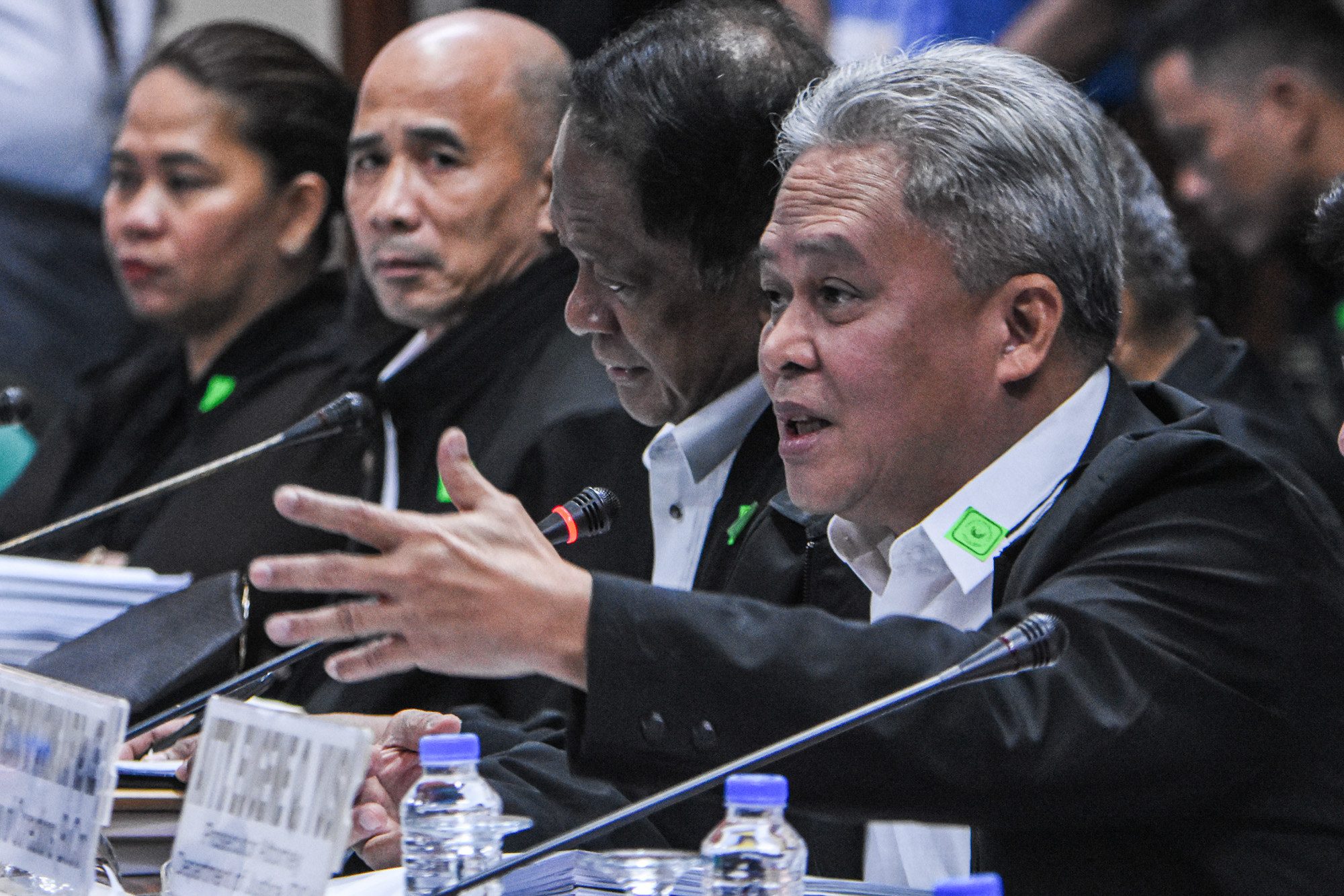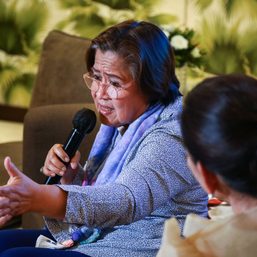SUMMARY
This is AI generated summarization, which may have errors. For context, always refer to the full article.

MANILA, Philippines – The Bureau of Corrections (BuCor) has suspended its strip and cavity search policy in prisons following complaints from wives of political prisoners.
BuCor director general Gregorio Catapang Jr. announced the suspension on Friday, May 10, “pending the result of the investigation being conducted by the bureau.”
Catapang explained that the suspension will give them time to review their protocols, adding that they reached the decision after his meeting with other corrections officials.
“Should a visitor refuse to undergo the search procedure, such visitor may opt to avail of our electronic visits or the ‘e-dalaw.‘ Visitors are not compelled to sign the waiver. Minors are not subjected to strip searches,” Catapang said.
Early this month, wives of political prisoners complained about the strip and cavity search being implemented in prisons, like the New Bilibid Prison in Muntinlupa City, Metro Manila. The wives said the searches were intrusive and trampled on their dignity and rights.
Strip searches involve the removal of a person’s clothes, including undergarments, to permit a visual inspection of a person’s body, according to the United Nations (UN) Rules for the Treatment of Women Prisoners and Non-custodial Measures for Women Offenders with their Commentary, also known as Bangkok Rules. Body cavity searches, meanwhile, are more intrusive and involve the inspection of a person’s genitals and anal region.
Assisted by Kapatid, a rights group that helps political prisoners, the wives filed complaints with the Commission on Human Rights (CHR). The CHR later announced that it launched its own probe into the complaints against the policy. BuCor then said it was also conducting its own investigation and had already relieved seven corrections officers to pave the way for the probe.
Catapang also said on Friday that he sent a letter to CHR Commissioner Faydah Maniri Dumarpa and told the CHR official that they “uncovered 19 positive results from of the genital part of PDL (persons deprived of liberty) visitors consisting of four incidents/confiscations of illegal drugs and 15 incidents/confiscations of other contrabands.”
As to the complaints filed by the wives, Catapang said the personnel implicated were relieved from their assignments pending the probe.
The UN’s Standard Minimum Rules for the Treatment of Prisoners, also known as Mandela rules, prescribe the humane way of handling prisoners. Rule 52, section 1 states that intrusive searches should be done only if there’s no other way, and must be done in private and “by trained staff of the same sex as the prisoner.”
“Body cavity searches shall be conducted only by qualified health-care professionals other than those primarily responsible for the care of the prisoner or, at a minimum, by staff appropriately trained by a medical professional in standards of hygiene, health and safety,” the rules’ section 2 reads.
Bangkok Rules, meanwhile, suggest the use of alternative screening methods, like scans, as replacement for body searches. This is “to avoid the harmful psychological and possible physical impact of invasive body searches.” – Rappler.com
Add a comment
How does this make you feel?

![[Under 3 Minutes] Silip sa loob ng Bilibid](https://www.rappler.com/tachyon/2024/01/title-card-ls-1.jpg?resize=257%2C257&crop=420px%2C0px%2C1080px%2C1080px)



![[WATCH] Silent Tragedy: Epekto ng war on drugs sa mga bilangguan](https://www.rappler.com/tachyon/2024/06/silent-tragedy-tcard.jpg?resize=257%2C257&crop_strategy=attention)


There are no comments yet. Add your comment to start the conversation.